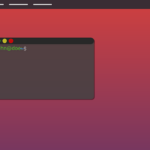E-commerce Solutions with Linux stand out due to their exceptional customization capabilities and adaptability, which are critical for delivering a tailored user experience. These solutions offer developers the flexibility to fine-tune interfaces to meet specific business needs and align with customer preferences, optimizing both performance and security. The open-source community's ongoing contributions keep Linux at the cutting edge, ensuring businesses have access to the latest features and enhancements. Linux's stability is particularly advantageous for handling high traffic and complex transactions in e-commerce. Its modular design allows for the seamless integration of specialized applications, making it suitable for a wide range of functionalities, including inventory management and customer relationship optimization. Linux's scalability ensures that as businesses grow, their e-commerce interfaces can evolve without compromising performance or user experience during peak times. Linux also boasts robust security features that help protect sensitive data, thereby building trust with customers. In essence, Linux-based e-commerce solutions are highly customizable, secure, scalable, and designed to adapt to future needs, positioning businesses to succeed in the competitive online retail market by offering sophisticated user experiences, driven by innovation and community collaboration. These platforms provide a robust foundation for developers to create flexible, responsive, and personalized shopping environments that evolve with consumer trends, ensuring sustained engagement and satisfaction. Adopting Linux-based solutions enables e-commerce businesses to thrive in the dynamic online space with secure, reliable, and continuously updated frameworks that support advanced technologies for optimized operations and exceptional customer experiences.
In the dynamic realm of e-commerce, a seamless and adaptable interface is paramount for success. This article explores the transformative potential of leveraging Linux in crafting customizable e-commerce interfaces that cater to diverse user preferences. By delving into the role of open source platforms and implementing Linux-based solutions, businesses can significantly enhance user engagement and streamline operations. Discover how these strategies not only improve the user experience but also provide a competitive edge in the ever-evolving landscape of online retail.
- Leveraging Linux for Enhanced Customization in E-Commerce Interfaces
- The Role of Open Source Platforms in Crafting a User-Centric E-Commerce Experience
- Implementing Linux-Based Solutions to Streamline E-Commerce Operations and Boost User Engagement
Leveraging Linux for Enhanced Customization in E-Commerce Interfaces

In the realm of e-commerce, providing a seamless and personalized user experience is paramount for success. Linux-based systems offer unparalleled customization capabilities that can significantly enhance the interface of e-commerce solutions. Unlike proprietary operating systems, Linux provides a flexible foundation where developers can tailor every aspect of the user interface to meet specific business needs. This adaptability means that e-commerce websites can be fine-tuned not just to the preferences of their target audience but also to optimize performance and security. The open-source nature of Linux fosters a collaborative ecosystem where developers contribute continuously, ensuring that the systems powering e-commerce interfaces are always updated with the latest features and improvements. Furthermore, Linux’s stability and reliability underpin the robustness required for handling high traffic volumes and complex transactions that are typical in the dynamic e-commerce environment. By leveraging Linux, businesses can create a more user-friendly experience through customizable interfaces that are both responsive and secure, ultimately driving customer satisfaction and sales.
E-commerce solutions built on Linux can be as diverse and unique as the products they sell. The modular design of Linux-based systems allows for the integration of specialized applications and tools that cater to niche markets or unique business models. This versatility enables e-commerce platforms to offer a wide array of functionalities, from inventory management to customer relationship optimization. Additionally, the scalability of Linux means that as an e-commerce business grows, its interface can grow with it, maintaining performance and user experience even during peak traffic periods. The security features inherent to Linux also play a crucial role in safeguarding sensitive transactional data, which is critical for building trust and loyalty among customers. In essence, Linux provides the foundation for e-commerce interfaces that are not only customizable but also robust, secure, and future-proof, positioning businesses at the forefront of the online retail space.
The Role of Open Source Platforms in Crafting a User-Centric E-Commerce Experience

Open source platforms play a pivotal role in shaping the user-centric e-commerce experiences that modern consumers expect. E-commerce solutions with Linux, such as those built on platforms like Magento, WooCommerce, and PrestaShop, offer robust frameworks that are highly customizable to meet diverse consumer needs. These open source solutions provide a flexible canvas for developers to create tailored shopping environments. The modularity of these systems allows for seamless integration of various functionalities, ensuring that the e-commerce interface not only adapts to user behavior but also anticipates it, enhancing the overall user experience. The open-source nature of these platforms fosters a collaborative environment where developers and designers can continuously innovate, leading to interfaces that are both intuitive and responsive. This means that e-commerce sites can offer personalized experiences through adaptive layouts, dynamic content presentation, and optimized navigation paths, all of which are critical for maintaining user engagement in the competitive online marketplace.
Furthermore, the use of open source e-commerce solutions with Linux underscores a commitment to transparency and security, which are paramount in the digital commerce space. The community-driven model of these platforms ensures that vulnerabilities are rapidly identified and addressed, providing a safer environment for both users and merchants. This level of security, coupled with the flexibility to implement user-friendly design elements and features, positions open source e-commerce solutions as a formidable choice for businesses aiming to deliver a superior online shopping experience. The adaptability of these platforms means that they can evolve alongside consumer trends, ensuring that the e-commerce sites using them remain at the forefront of user engagement and satisfaction.
Implementing Linux-Based Solutions to Streamline E-Commerce Operations and Boost User Engagement

In the realm of e-commerce, adaptability and efficiency are paramount for success. Implementing Linux-based solutions offers a robust framework for e-commerce platforms to thrive in this competitive landscape. Linux’s open-source nature ensures that these solutions are secure, reliable, and continuously updated by a global community of developers. This commitment to security and innovation directly translates into a user-friendly experience, as customizable interfaces can be tailored to individual customer preferences and behaviors. With Linux, e-commerce businesses can leverage cutting-edge technologies like containerization and virtualization to streamline operations, facilitate faster page load times, and provide an uninterrupted shopping experience across all devices. The result is a highly responsive system capable of handling large volumes of transactions with ease, thereby boosting user engagement and fostering customer loyalty.
Moreover, Linux-based e-commerce solutions are designed to be scalable, allowing businesses to grow at their own pace without worrying about infrastructure constraints. These platforms can efficiently manage data-intensive tasks and complex workflows, ensuring seamless integration with payment gateways, inventory management systems, and customer relationship management tools. The customizability of Linux enables e-commerce sites to offer personalized shopping experiences, from product recommendations that resonate with the user’s past behavior to real-time support that enhances the overall satisfaction of the online shopper. By adopting Linux solutions, e-commerce enterprises can differentiate themselves in a crowded marketplace and maintain a competitive edge through unparalleled performance and user engagement.


























